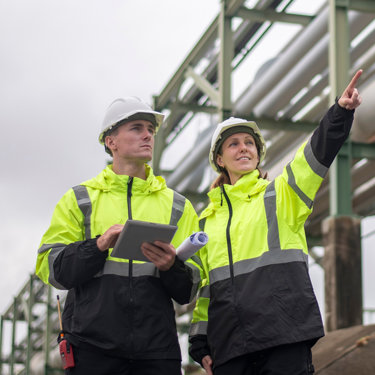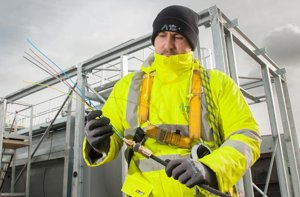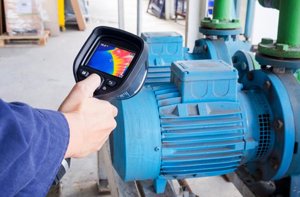
Electric vehicle charging stations
Ready to discuss your project?
Please leave your details and a member of our team will reach out to discuss your requirements in more detail and arrange next steps.
From design, application, civils, electrical work and hardware installation, we are the go-to partner for organisations looking to transform their energy infrastructure and meet the demands of carbon reduction and Net-Zero pledges.
Features and outputs
- Our electrical and mechanical services can be delivered as stand-alone works, planned preventative maintenance (PPM), or as part of bespoke projects.
- With our focus on long term quality solutions, we can help to lower your maintenance costs, reduce downtime to ensure your assets remain operational for longer.
- Our electrical and mechanical services can be delivered as stand-alone works, planned preventative maintenance (PPM), or as part of bespoke projects.
Added value
Expertise
Qualified
Capability
Trusted
New build installation
From design through to installation, we can ensure your commercial and hazardous area electrical equipment and EV charging is compliant from the start.
Reactive maintenance
Throughout your equipment's lifecycle, we can provide ad-hoc maintenance when required, such as vandalism, in accordance with the current legislation, and react to any operational problems to ensure ongoing compliance and reduce downtime.
Planned maintenance
We can run and support your routine inspection and testing programme, as well as agreeing regular maintenance schedules with you to ensure compliance and business continuity. We will also inspect and test equipment ready for commissioning and sign off, raising electrical certificates 18th edition BS7671.
Which EV charger is right for you?
We are supplier agnostic meaning we will suggest the right solution for your requirements.
Forecourts tend to install ultra-rapid chargers to emulate the typical dwell time of 7 minutes on a forecourt of traditional petrol and diesel vehicles.
Commercial businesses are more likely to install fast chargers for their fleet vehicles, staff, and customers. Some organisations that specialist vehicles like electric tankers, might consider rapid chargers.
Destination locations will be looking at fast chargers to provide charge to customers while they engage with the services provided, such as shopping. Read more about destination charging in our blog here.
Public sector will be considering various options from fast to rapid chargers. Fast chargers are well suited for public car parks. However, councils may want to offer the option for some drivers to charge and go adding some rapid chargers into the mix.
Different speeds for different needs
All chargers have different speeds offering varying levels and speed of charge. This table shows the kW and range offered by different charge types to achieve 140 miles of range.
|
Charger type |
Power |
Time of charge |
|
Slow charger |
3kW |
490 minutes |
|
Fast charger |
7kW |
245 minutes |
|
Existing rapid charger |
50kW |
43 minutes |
|
Ultra-fast charger |
150kW |
14 minutes |
|
Ultra-fast charger |
300kW |
7 minutes |
What’s driving the change?
UK EV registrations have increased exponentially since 2019 driven by the banning of diesel and petrol vehicle sales from 2030 in the UK. According to National Grid there will be 36 million EV cars on the roads by 2040.
The increase in the demand for electric vehicles will require a complete shift in the infrastructures of our towns and cities as transport shifts from oil to electricity consumption.
We will need to install millions of EV charging stations in forecourts, commercial car parks, commercial businesses, and public sector spaces to ensure people have access to charging whenever and wherever is right for them.
A typical installation process
Each project will have a planning phase, procurement phase, along with an installation and commissioning phase:
The planning phase
We will help you to identify locations and if planning permission is required and assist with appointing architects.
We can then help you to decide on the number and type of charge point(s).
We will make initial contact with your DNO to submit an enquiry and discuss network capacity at the locations concerned.
We can act as your electrical contractor for the charge point installation.
Procurement phase
We can help you to apply for an electrical network connection from your DNO.
We then submit a map where the preferred location is marked with a circle rather than a specific point.
For multiple applications, we can help you prioritise the locations in rank order (most favoured to least favoured) if possible.
Finally we provide your DNO with the technical data sheet for the charge point types you are planning to install.
Installation phase
We can assist you to receive, review, and accept the DNO design and quotation received.
Our civil engineering team will support with the installation of your new chargepoints.
You will need to appoint an electricity supplier who will bill for the electrical energy used.
Your supplier will appoint a meter operator to install a meter for the charge point.
Commissioning phase
We can carry out electrical testing and issue all relevant documentation.
We will also carry out commissioning of EV chargers.
Finally we will implement an ongoing service and maintenance routine.
You might also be interested in...
Environmental compliance today, creating a sustainable tomorrow
Helping you reduce risk to the environment and your operation by managing assets compliantly while achieving commercial, ESG, and net-zero goals.
Contact our experts



